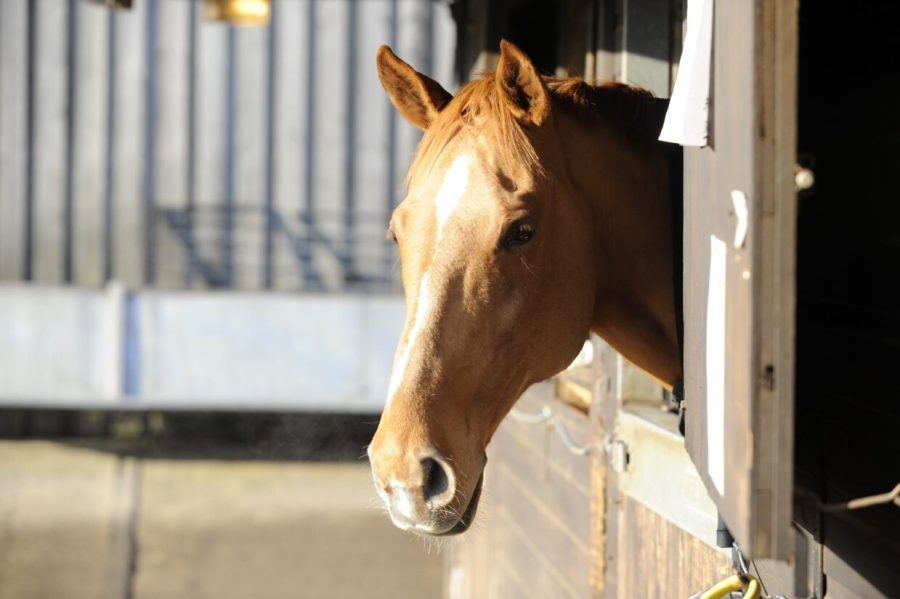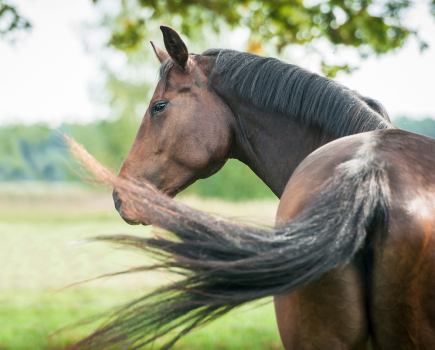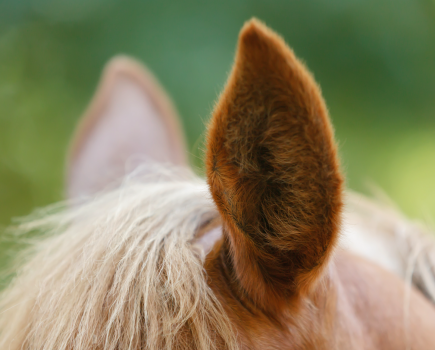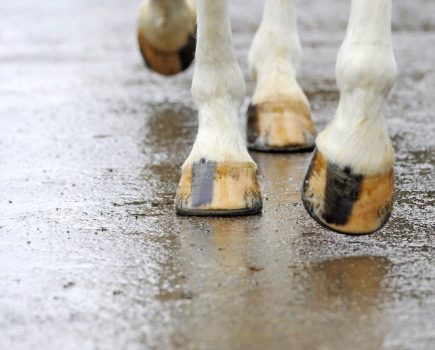Apart from the usual greeting of a whinny or a snort, horses don’t tend to make a lot of respiratory noise when they are at rest, so any increase in frequency or loudness of noise could indicate that there is a problem.
There are of course sounds that are made during exercise, some of which are completely normal, and others that may need further investigation. Diagnosis and treatment may be covered in your horse health insurance policy, if you have one, so it is worth speaking to them to find out.
Whistling or roaring
These respiratory noises can occur when there is paralysis on one or both sides of the horse’s larynx, resulting in a narrowing of the larynx and therefore airway obstruction.
It is more common in racehorses but can be seen in other breeds, especially in larger horses. In most cases surgery is required to open up the airway. This prevents the obstruction from occurring, allowing the air to move through the larynx more easily.
Gurgling
A gurgling or choking noise, followed by the horse stopping or trying to swallow, can indicate another problem with the throat called displacement of the soft palate.
Again, this more commonly occurs in racehorses. Sometimes a drop noseband or a tongue-tie can help to reduce the incidence of this occurring, but often surgery is required.
Coughing
Occasionally horses cough when first exercised, but if the horse is seen to cough multiple times, either at rest or during exercise, this should be investigated.
Coughing often occurs due to the inhalation of an irritant such as dust or pollen and may be more likely during exercise because the horse’s airways are having to work harder.
Continuous coughing at rest may indicate that there is a more severe reaction and may be associated with respiratory distress, seen as increased breathing rate and the horse needing to make more effort to breathe.
Viruses can also respiratory noises such as coughing and there is usually more than one horse affected. They may also be off their food, lethargic and have a high temperature.
Wheezing
This noise can be heard alongside coughing as it is often heard in horses who have a dust or pollen allergy.
Usually, the wheezing can only be heard through a stethoscope, but in severe cases it may be heard when you are standing next to the horse, being noticeable when the horse is breathing in and out.
The noise indicates that the airways have become narrowed, causing the horse to struggle to breathe.
Often a wheezing horse will be suffering from respiratory distress.
If these signs are seen, your vet should be called straight away so that they can give treatment to open up the airways, making the horse more comfortable and enabling them to breathe more easily.
The impact of obesity
An increase in respiratory noise can be heard in overweight horses due to the excess tissue around their neck putting pressure on the throat. These horses are known as being ‘thick-winded’ and, with a training plan to improve fitness, the noises coming from these horses should improve.
![]() Have you heard about Your Horse’s #FitNotFat campaign? Equine obesity is an enormous welfare problem and we’re on a mission to provide owners and riders with the knowledge, skills and information you need to keep your horse in tip-top health. It could be life saving! Find out more
Have you heard about Your Horse’s #FitNotFat campaign? Equine obesity is an enormous welfare problem and we’re on a mission to provide owners and riders with the knowledge, skills and information you need to keep your horse in tip-top health. It could be life saving! Find out more










